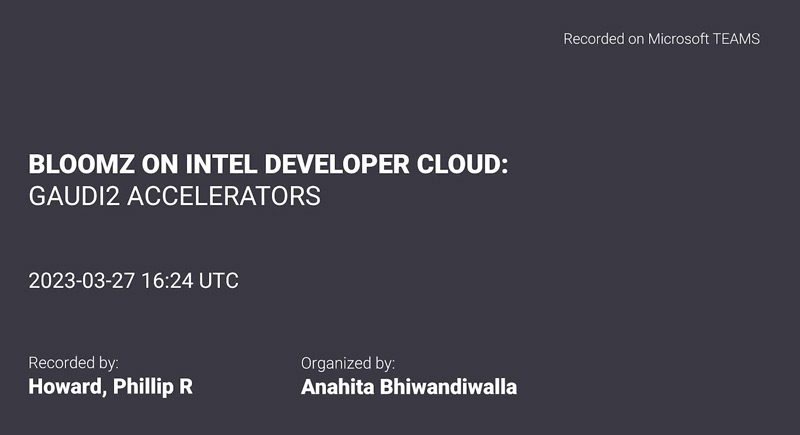Welcome to the Intel® Gaudi® AI accelerator developer website.
Here, you’ll find all the resources, guidance, tools, and support you need to easily and flexibly build new AI models, migrate existing ones, and optimize their performance to meet your requirements. Additionally, you can access the latest Intel Gaudi software to build or update your infrastructure.
Ready to get started?
Explore the options below to access Intel Gaudi accelerators, along with model references, libraries, containers, and tools for training and deploying Generative AI and Large Language Models .
Stay Informed: Register for the latest Intel Gaudi AI Accelerator developer news, events, training, and updates.
Latest Webinar Recordings and Informative ‘How To’ Videos
Learn and explore at your own pace with our on-demand webinars and easy-to-follow ‘How To’ videos.
Recent Posts and Tutorials
Check out the newest content from our blog. Explore a range of topics and tutorials designed to keep you up-to-date and informed.
post
Bringing forth numerous enhancements and updates for an improved GenAI development experience.
post
Lean how to use TGI-gaudi and Langchain to build and deploy a RAG application
post
Learn how to execute scalable model development with Fully sharded data parallel (FSDP) training using PyTorch and Intel Gaudi Accelerators
tutorials
Learn how to use Retrieval Augmented Generation on Intel Gaudi with Hugging Face






